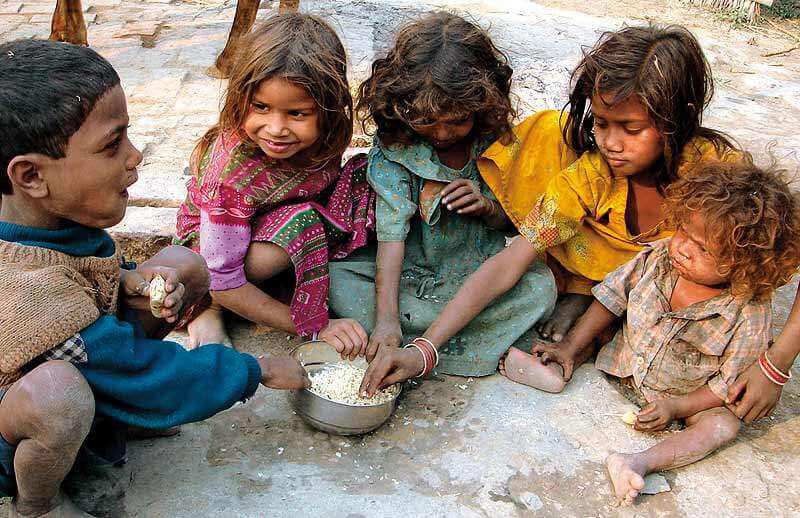Russia’s withdrawal from the Black Sea grain deal has led to global food insecurity, with UN agencies warning of an increasing number of people suffering from chronic hunger.
UN Secretary-General António Guterres stated, “The recent termination of the Black Sea Initiative by Russia has further exacerbated the situation.” “Global food systems are broken - and billions of people are paying the price,” Guterres highlighted.
Guterres’ Remarks
On Monday, a three-day UN meeting convened in Rome to address a “broken” global food system that has led to millions of people starving. The summit brings together representatives from the UN’s three food agencies: the Food and Agriculture Organisation (FAO), the International Fund for Agricultural Development (IFAD), and the World Food Programme (WFP), as well as heads of state, government representatives, and delegates.
At the UN Food Systems Summit +2 Stocktaking Moment in Rome, Guterres remarked that, in a world of plenty, “it is outrageous that people continue to suffer and die from hunger.”
Guterres expressed concern over Russia’s withdrawal from the landmark grain deal, which permitted cargo ships carrying Ukrainian grain to depart from Kyiv’s Black Sea ports. “With the termination of the Black Sea Initiative, the most vulnerable will pay the highest price,” he warned, imploring Moscow to reconsider its decision.
The UN chief stated that he remained committed to providing both nations with unimpeded access to global markets for food and fertilisers and “delivering the food security that every person deserves.”
According to Guterres, the negative impact on global wheat and corn prices is already evident and “this is especially devastating for vulnerable countries struggling to feed their people.”
A three-day United Nations summit opened in Rome on Monday aimed at tackling a "broken" global food system where millions are starving, two billion are overweight or obese and the planet is suffering.https://t.co/vKvxRf7pCD
— AFP News Agency (@AFP) July 24, 2023
Black Sea Grain Deal Withdrawal
Following weeks of discussions, the UN-brokered agreement, which allowed Ukraine to export more than 30 million tonnes of grain to global markets via three Black Sea ports, was terminated by Russia on 17 July. Moscow also revoked security guarantees for ships navigating the Black Sea’s northern region.
Last week, Kremlin spokesperson Dmitry Peskov informed reporters that Russia will not extend the agreement at this time, indicating that it “has been terminated.” The grain agreement reportedly ended because Russia’s demands were not implemented.
Addressing Russia’s withdrawal from the deal, Guterres had said, “At a time when the production and availability of food is being disrupted by conflict, climate change, energy prices and more, these agreements have helped to reduce food prices by over 23 per cent since March last year.”
According to the UN Sec-Gen, the grain deal and the MoU with Russia were described as “a lifeline for global food security and a beacon of hope in a troubled world.”
Black Sea Grain Initiative
Russia, Ukraine, Turkey, and the UN agreed on the Black Sea grain initiative in Istanbul in July last year, along with a parallel agreement between the UN and Russia on grain and fertiliser exports. The agreement permitted Ukraine to export food and fertiliser from three Black Sea ports to the global market. The deal had been renewed three times thus far, each time for 60 days.
Ukraine and Russia are considered wheat, barley, and sunflower oil producers worldwide, supplying food to developing countries. During the Russia-Ukraine conflict, the agreement helped to lower global food prices.
For several months last year, the lack of grain from Ukraine exacerbated a global food security crisis.
— DW News (@dwnews) July 22, 2023
What will happen this year with Russia withdrawing from the Black Sea deal?https://t.co/6thH8OmPBl pic.twitter.com/oNkjE8bMMu
Global Food System Affected
According to UN estimates, over 780 million people are starving, about one-third of all food produced globally is lost or discarded, and nearly three billion people cannot afford nutritious meals.
Food systems, which involve various sectors and individuals, are influenced by various factors such as urbanisation, climate change, technology, and government policy.
According to the WFP, weather conditions, the COVID-19 pandemic, and conflicts like the crisis in Ukraine have contributed to an increase of 122 million people suffering famine since 2019. WFP estimated in a report published earlier this month that 691-783 million people were starving last year, with a midrange of 735 million.
During the summit in Rome, Guterres proposed at least $500 billion annually to assist poor nations in increasing long-term finance to invest in more efficient food systems.

